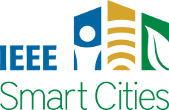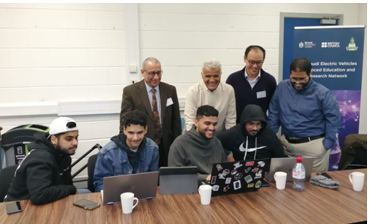Education in Electric Vehicle Systems: A Multi-Disciplinary Approach
Written by Chun Sing Lai, Mohamed Darwish, and Maysam Abbod
Electric vehicles (EVs) are key technologies in research and development towards decarbonising road transportation. It is a general perception that vehicles are related to automotive technology and vehicular dynamics, which are still relevant today. However, EVs differ significantly from vehicles with internal combustion engines. EVs use electrical motors for propulsion and batteries as energy sources.
This article reports the lessons and learning outcomes in an Electric Vehicle Systems course designed to equip advanced students with knowledge of low-carbon electric vehicle systems and advanced battery technologies. Unlike a traditional automotive course, this course focuses on the key areas of electronic and electrical engineering related to electric vehicle systems. These include power electronics and drives, vehicular communication systems, sustainable smart energy systems, intelligent systems, and embedded systems, which all contribute to the design of electric vehicle charging infrastructure and converter topologies.
The use of advanced technologies in a course’s teaching system empowers educators, while enabling students to digest knowledge and acquire skills more efficiently, effectively, conveniently, and flexibly. SMART teaching also encourages more interaction between students and teachers. There are at least five characteristics of a well-written SMART teaching objective, and these elements make up the SMART acronym: Specific, Measurable, Achievable, Relevant, and Time-bound.
Students can incorporate successful study skills that, when practiced overtime, become good habits. Students learn to be more productive, gain confidence, and acquire independence. SMART learning helps students contribute to a setting where all experience a safe, healthy sharing environment which encourages respect and high expectations, maximizes potential, and stimulates interest and enthusiasm. SMART learning provides a higher level of engagement among students than traditional forms of learning. It involves digital content, including multimedia files, presentations, and animations, in order to explain complex concepts in engineering and science in a simplified manner, by breaking them down into smaller, more manageable parts.
Students will have access to modern technical facilities including computers, electronics, and power and control laboratories, where they work on practical laboratory-based exercises. The latest industry-standard engineering software packages are available for students to use in purpose-built computer laboratories.
In order to meet the net-zero emission target and fulfil the national agenda, there will be an industry demand for engineers with specialisation in electric vehicle systems. The interest in EV education is expanding globally. There are multidisciplinary collaborations from different engineering departments with the aim of building new graduates who possess knowledge and research skills in the fields of Enhanced Energy Management, including advanced modelling, monitoring, and control of electric vehicle subsystems. This also includes knowledge and research skills in: energy storage with consideration of comprehensive lifecycle deployment of electric vehicle batteries; advanced power modules, such as advanced integrated power modules for ultra-compact chargers; next-generation powertrains with innovative system topologies to increase the efficiency of electric vehicle powertrains; ubiquitous charging (i.e. fast, on-board, and wireless charging solutions) to reduce range anxiety; and electric vehicle opportunities to expand the utility of electric vehicles and batteries.
Figure 1 shows four engineering students participating in electric vehicle range modelling from the EV course at Brunel University London, as part of the UK-Saudi Electric Vehicles Education and Research Network.
Figure 1: Students participating in electric vehicle range modelling with supervision from academic members.
Further Reading
- Electric Vehicle Systems MSc: https://www.brunel.ac.uk/study/postgraduate/electric-vehicle-systems-msc
- UK-Saudi R&D for emerging electric vehicles technologies: https://www.brunel.ac.uk/research/Projects/Project?entryid=05ea4cdf-270d-4b17-9f11-d5ffdfa6c7cc
- Darwish, M., Rady, M., Abbod, M., Almatrafi, E. and Lai, C.S., 2022, August. Forecourt Electric Vehicles Charging Hubs–UK and Saudi Research and Education Collaboration. In 2022 57th International Universities Power Engineering Conference (UPEC) (pp. 1-5). IEEE.
This article was edited by Bernard Fong.
To view all articles in this issue, please go to July 2023 eNewsletter. For a downloadable copy, please visit the IEEE Smart Cities Resource Center.



To have the eNewsletter delivered monthly to your inbox, join the IEEE Smart Cities Community.
Past Issues
To view archived articles, and issues, which deliver rich insight into the forces shaping the future of the smart cities. Older eNewsletter can be found here. To download full issues, visit the publications section of the IEEE Smart Cities Resource Center.




